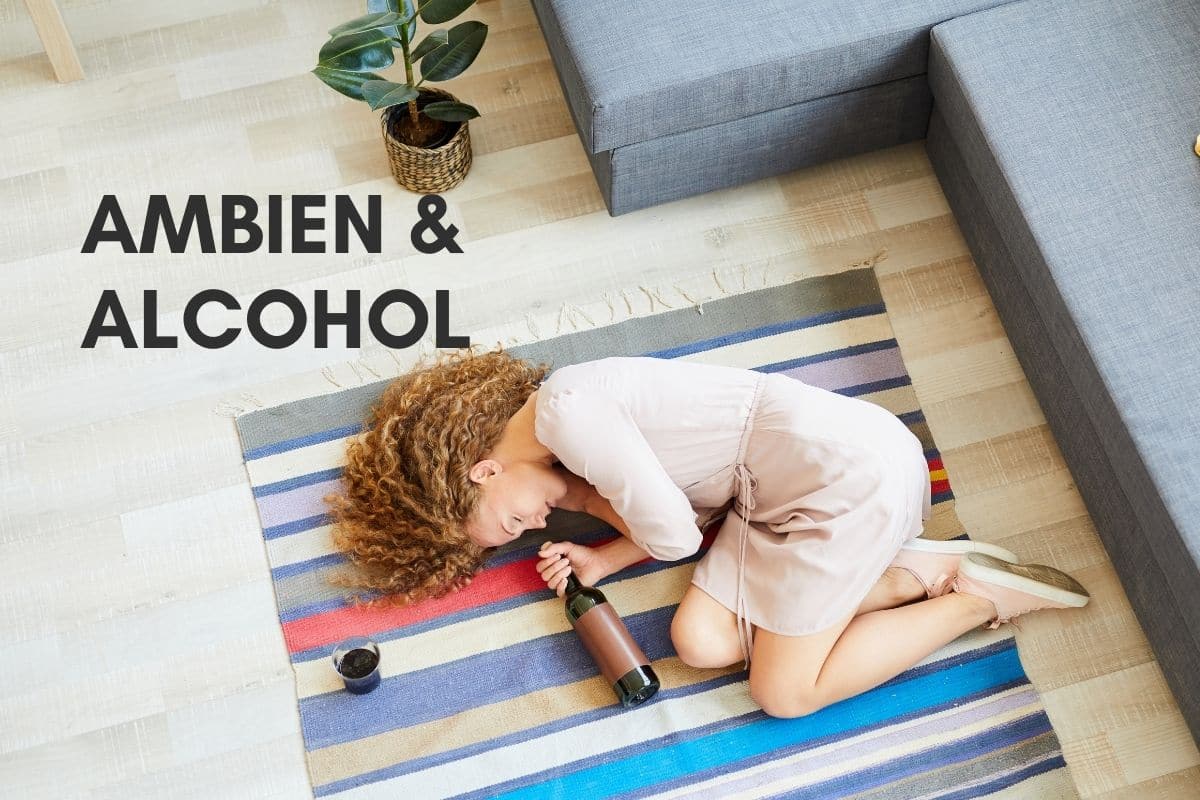What is Ambien?
Ambien is a prescription medication used to treat sleep disorders, specifically insomnia. It is classified as a sedative-hypnotic that aids in falling asleep by acting on the CNS. The generic name for Ambien is zolpidem. Although it is not a benzodiazepine, it does have similar depressant effects on the CNS. A powerful and addictive substance itself, there are numerous possible risks associated with Ambien and they multiply when mixed with alcohol or other drugs.
Typically physicians will only prescribe a week or two worth of Ambien at a time in order to reduce the risk of abuse, addiction, and tolerance. For the patient’s own wellbeing, they are observed during these 2 weeks for signs of abuse or addiction. Doctors should prescribe the lowest possible dosage to achieve the desired effects because there is always the risk of experiencing side effects the morning following usage. Additionally, patients should only take this medication if they are able to get 7 or more hours of continuous sleep.
Although alcohol is far from the only substance that is dangerous when mixed with Ambien, it is the most common one. In many cases, individuals will mix Ambien and alcohol with little to no knowledge about the dangers involved. Their doctor may go over the side effects of using Ambien, but the effects of both alcohol and Ambien are amplified significantly when they are combined. The scary truth is that the results can be deadly.
The Effects of Mixing Ambien & Alcohol
Large amounts of alcohol can affect the CNS, causing reduced vital signs and overdose. Ambien is designed to cause drowsiness and relaxation, but these individual effects can be amplified several times over even when small amounts of both substances are consumed. The physical effects of this combination include:
- Dizziness
- Confusion
- Difficulty concentrating
- Impaired cognition
- Loss of physical coordination
- Impaired judgment
- Sleepiness or drowsiness
- Somnambulance (sleepwalking)
- Depressed breathing
- Sleep apnea
Although some of these side effects may present with Ambien alone, the combination of multiple sedatives severely enhances them. People who consume alcohol and Ambien together are more than twice as likely to end up in intensive care, compared to people who took Ambien but did not also drink.
Ambien & Alcohol Overdose
One of the major risks of mixing Ambien and alcohol is experiencing an overdose. Identifying early signs of an overdose and reacting quickly could actually save their life. Common signs of an overdose include pinpoint pupils, slurred speech, unresponsiveness, lack of consciousness, irregular or shallow breathing. If someone is experiencing an overdose, call 911 right away.
Benefits of Addiction Treatment
Someone who has an overdose from mixing Ambien and alcohol may not actually think that they have an addiction. However, discussing addiction treatment may be beneficial to them regardless of whether they are ready to admit that they need help. Understand that rehab provides structure, routine, and tools to build new, healthy habits and set users up for long-term sobriety. For instance, structure and nutrition counseling can help improve the quality and quantity of sleep an individual gets. Our drug and alcohol rehab professionals work with clients to give them the treatment they need to live a better, healthier life.


































